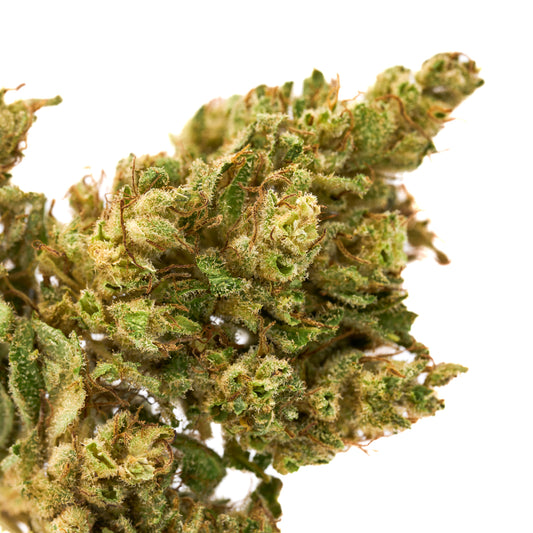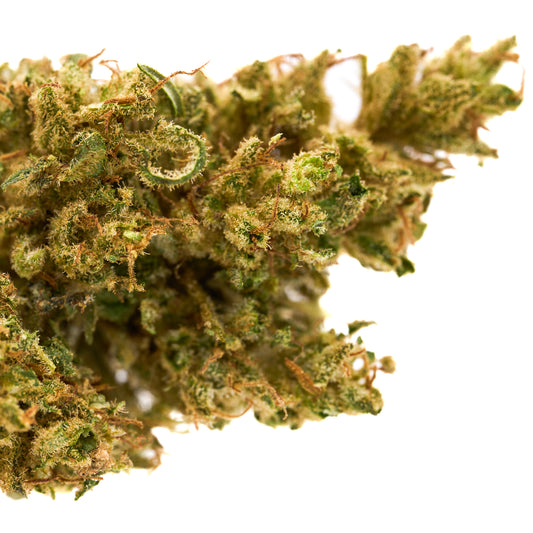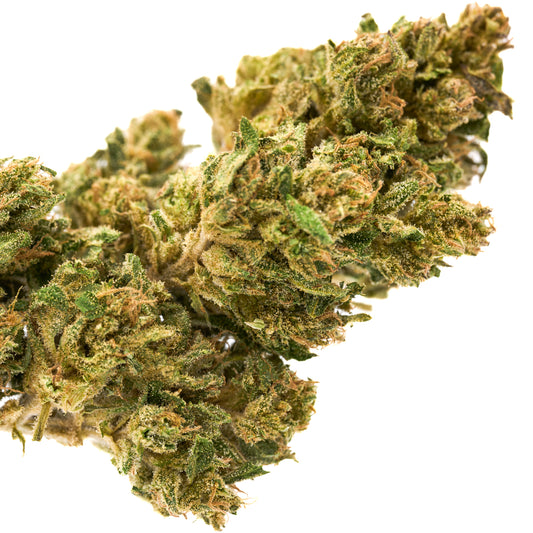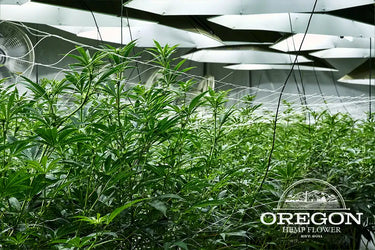Water Quality's Impact on THCA Flower: Oregon's Pure Mountain Sources
The cannabis industry has witnessed remarkable growth in recent years, with THCA flower emerging as one of the most sought-after products among consumers seeking premium quality hemp. While many factors contribute to exceptional cannabis cultivation, one element stands above all others in determining the final product's quality: water. Oregon's pristine mountain water sources have positioned the state as a premier destination for THCA flower cultivation, offering cultivators access to some of the purest water on Earth.
The relationship between water quality and cannabis cultivation extends far beyond simple hydration. Water serves as the foundation for nutrient uptake, metabolic processes, and ultimately, the development of cannabinoids and terpenes that define premium cannabis products. Oregon's unique geography, characterized by snow-capped mountain ranges and pristine watersheds, provides an unparalleled advantage for hemp cultivation operations seeking to produce the highest quality THCA flower.
The Foundation of Cannabis Cultivation: Understanding Water's Role
Water comprises approximately 80% of a cannabis plant's structure, making it the most critical input in any cultivation operation. The quality of this water directly influences every aspect of plant development, from root formation to cannabinoid synthesis. For oregon water quality hemp cultivation, the state's natural water resources provide an exceptional foundation that many cultivators worldwide can only dream of accessing.
The molecular structure of water allows it to serve as a universal solvent, facilitating the transport of nutrients, minerals, and other essential compounds throughout the plant. When water quality is compromised by contaminants, heavy metals, or improper pH levels, these issues cascade through every biological process within the plant. Conversely, pure water with optimal mineral content creates an environment where plants can achieve their maximum genetic potential.
Mountain water thca cultivation benefits from water that has been naturally filtered through layers of rock and soil over decades or centuries. This natural filtration process removes harmful contaminants while preserving beneficial minerals that support plant health. The result is water with exceptional purity and mineral balance that translates directly into superior plant quality.
Oregon's Geographic Advantage: Mountain Water Sources
Oregon's mountainous terrain creates an ideal environment for water purification through natural processes. The Cascade Range, Coast Range, and other mountain systems act as massive water filtration systems, collecting precipitation and allowing it to percolate slowly through various geological layers. This process removes impurities while infusing the water with beneficial minerals from the surrounding rock formations.
The elevation of Oregon's water sources provides another significant advantage. Higher elevation water sources typically contain lower levels of agricultural runoff, industrial pollutants, and other contaminants that plague water systems in more developed areas. This pristine quality makes Oregon mountain water particularly suitable for pure water cultivation operations that demand the highest standards.
Snow-fed streams and springs throughout Oregon maintain consistent temperatures and mineral profiles throughout the growing season. This consistency is crucial for cannabis cultivation, as plants respond negatively to sudden changes in water chemistry. The stable nature of Oregon's mountain water sources allows cultivators to maintain optimal growing conditions throughout the entire cultivation cycle.
Water Quality Parameters: The Science Behind Superior THCA
Understanding the specific parameters that define high-quality water for cannabis cultivation is essential for appreciating Oregon's advantages. Several key factors determine water quality, each playing a crucial role in plant health and cannabinoid production.
pH levels represent one of the most critical water quality parameters for cannabis cultivation. The optimal pH range for cannabis typically falls between 6.0 and 7.0 for soil cultivation, with slight variations for hydroponic systems. Water ph hemp cultivation requires precise pH management to ensure optimal nutrient uptake. Oregon's mountain water sources typically maintain pH levels within this optimal range naturally, reducing the need for costly pH adjustment chemicals.
Total dissolved solids (TDS) and electrical conductivity (EC) measurements indicate the concentration of dissolved minerals and salts in water. While some mineral content is beneficial for plant growth, excessive TDS levels can interfere with nutrient uptake and stress plants. Oregon's mountain water sources generally maintain TDS levels in the ideal range for cannabis cultivation, providing sufficient minerals without overwhelming the plants' uptake mechanisms.
Heavy metals pose a significant threat to cannabis quality and consumer safety. Lead, mercury, cadmium, and other heavy metals can accumulate in plant tissues, potentially making their way into the final product. Oregon's pristine mountain water sources show consistently low levels of heavy metals, providing peace of mind for cultivators focused on producing safe, high-quality THCA flower.
Chlorine and chloramine levels require careful attention in cannabis cultivation. While these chemicals serve important purposes in municipal water treatment, they can negatively impact beneficial microorganisms in soil and hydroponic systems. Oregon's natural mountain water sources contain minimal chlorine or chloramine, eliminating the need for additional filtration or treatment.
Cultivation Methods and Water Quality Integration
Different cultivation methods require specific approaches to water quality management, each presenting unique opportunities to leverage Oregon's exceptional water resources. Understanding how water quality impacts various cultivation techniques helps explain why Oregon has become a preferred location for premium THCA flower production.
Indoor Cultivation Systems
Indoor thca flower cultivation offers the highest level of environmental control, allowing cultivators to optimize every aspect of the growing environment. Oregon's high-quality mountain water provides an excellent foundation for indoor operations, reducing the need for extensive water treatment systems and allowing cultivators to focus resources on other aspects of production.
Indoor cultivation systems typically require precise control over nutrient delivery, making water quality even more critical. Contaminants or inconsistent mineral profiles can interfere with nutrient formulations, leading to deficiencies or toxicities that impact plant health. Oregon's consistent mountain water quality provides a stable foundation for nutrient programs, enabling cultivators to achieve predictable results across multiple harvests.
The controlled environment of indoor cultivation also allows for optimal utilization of Oregon's premium water resources. Water recycling systems can capture and reuse water multiple times, maximizing the value of each gallon while maintaining quality standards. This efficiency is particularly important for large-scale operations seeking to minimize environmental impact while maintaining product quality.
Hydroponic Systems
Hydroponic thca oregon cultivation represents the pinnacle of water-dependent growing methods. In hydroponic systems, water serves as the growing medium itself, making water quality absolutely critical to success. Oregon's mountain water sources provide an ideal foundation for hydroponic operations, offering purity levels that exceed the requirements of even the most demanding systems.
Hydroponic cultivation requires water with minimal background contamination to prevent interference with precisely formulated nutrient solutions. The low TDS levels typical of Oregon's mountain water sources allow for accurate nutrient delivery without unexpected interactions. This precision enables cultivators to optimize plant nutrition for maximum THCA production and terpene development.
The sterile nature of high-quality mountain water also reduces the risk of pathogen introduction in hydroponic systems. Contaminated water can quickly spread diseases throughout a hydroponic operation, potentially destroying entire crops. Oregon's pure mountain water sources provide an inherently clean foundation that supports healthy plant development while minimizing disease pressure.
Outdoor Cultivation
Outdoor thca flower cultivation takes advantage of Oregon's natural growing conditions, including direct access to pristine water sources. Many outdoor cultivation sites in Oregon can access natural springs or streams, providing a constant supply of high-quality water throughout the growing season.
The natural mineral content of Oregon's mountain water supports healthy soil biology in outdoor cultivation systems. Beneficial microorganisms thrive in the presence of clean water with appropriate mineral content, creating a living soil ecosystem that supports plant health and enhances cannabinoid production. This biological activity is difficult to replicate in indoor systems, giving outdoor cultivation a unique advantage when high-quality water is available.
Irrigation thca oregon operations benefit from the consistent flow rates and quality of mountain water sources. Reliability is crucial for outdoor cultivation, as water interruptions during critical growth periods can severely impact yields and quality. Oregon's abundant mountain water sources provide the reliability needed for successful outdoor cultivation operations.
Greenhouse Production
Greenhouse thca flower cultivation combines the environmental control of indoor growing with the natural advantages of outdoor production. Oregon's mountain water sources support greenhouse operations by providing consistent quality inputs that complement controlled environmental systems.
Greenhouse cultivation often employs hybrid approaches that combine soil-based growing with supplemental nutrient delivery systems. The versatility of Oregon's mountain water allows greenhouse cultivators to adapt their water usage to match their specific growing methods, whether focusing on organic soil cultivation or more intensive fertigation programs.
The year-round growing potential of greenhouse systems makes water quality consistency even more important. Oregon's stable mountain water sources support continuous production cycles, enabling greenhouse operations to maintain consistent quality standards across multiple harvests throughout the year.
The Impact on Cannabinoid Development
Water quality directly influences the biosynthetic pathways responsible for cannabinoid production in cannabis plants. THCA, the acidic precursor to THC, develops through complex enzymatic processes that depend on optimal cellular conditions. High-quality water supports these processes by ensuring proper cellular hydration, nutrient transport, and metabolic function.
The mineral content of water plays a crucial role in enzyme function and cannabinoid synthesis. Trace minerals such as magnesium, calcium, and sulfur serve as cofactors in various enzymatic reactions that produce cannabinoids and terpenes. Mineral water cultivation using Oregon's naturally mineral-rich mountain water provides these essential elements in bioavailable forms that plants can readily utilize.
Research has shown that water stress can significantly impact cannabinoid production by disrupting normal metabolic processes. Plants experiencing water stress may redirect energy away from secondary metabolite production toward survival mechanisms, resulting in lower cannabinoid concentrations. Oregon's abundant, high-quality water sources help ensure that plants never experience water stress, allowing them to maximize cannabinoid production throughout their lifecycle.
The purity of water also affects the plant's ability to regulate internal water pressure and maintain cellular integrity. Clean water allows for proper osmotic pressure regulation, supporting healthy cell walls and optimal nutrient transport. This cellular health translates directly into improved cannabinoid production and overall plant quality.
Terpene Profile Enhancement Through Water Quality
Terpenes, the aromatic compounds responsible for cannabis's distinctive flavors and aromas, are equally sensitive to water quality. These volatile organic compounds develop through complex biosynthetic pathways that require optimal cellular conditions to function properly. High-quality water supports terpene production by maintaining the cellular environment necessary for these delicate processes.
The absence of contaminants in water allows plants to focus energy on secondary metabolite production, including terpenes. When plants must cope with water-borne contaminants, they may reduce terpene production as a protective mechanism. Oregon's pure mountain water eliminates this stress factor, allowing plants to maximize terpene development.
Certain minerals found in high-quality mountain water can actually enhance terpene production by supporting specific enzymatic pathways. The balanced mineral profile of Oregon's water sources provides these beneficial elements without overwhelming the plant's uptake mechanisms.
Environmental Sustainability and Water Conservation
Oregon's approach to clean water growing emphasizes environmental sustainability alongside product quality. The state's abundant water resources allow for responsible cultivation practices that minimize environmental impact while maintaining high production standards.
Many Oregon cultivation operations implement water recycling and conservation systems that maximize the utility of each gallon of precious mountain water. These systems capture runoff, filter it for reuse, and minimize waste while maintaining quality standards. The high initial quality of Oregon's mountain water makes these recycling systems more effective, as there are fewer contaminants to remove during the recycling process.
Sustainable water use practices also include selecting cultivation methods that optimize water efficiency. Oregon springs hemp cultivation operations often design their systems around natural water availability, using gravity-fed irrigation systems that minimize energy consumption while providing optimal water delivery.
Quality Assurance and Testing Protocols
Maintaining consistent water quality requires comprehensive testing and monitoring protocols. Oregon cultivation operations typically implement rigorous water testing programs that monitor all critical parameters throughout the growing season. These programs ensure that the high quality of mountain water sources is maintained from source to plant.
Regular testing for pH, TDS, heavy metals, and microbial contamination provides early warning of potential issues before they can impact plant health. The naturally high quality of Oregon's mountain water sources makes these testing programs more cost-effective, as fewer parameters typically fall outside acceptable ranges.
Documentation of water quality provides valuable data for optimizing cultivation practices and maintaining consistent product quality. Many Oregon operations maintain detailed water quality records that help identify trends and optimize their growing protocols over time.
The Premium Product Advantage
The combination of Oregon's exceptional water quality and advanced cultivation techniques produces THCA flower that consistently exceeds market expectations. Premium indoor thca products from Oregon consistently demonstrate superior cannabinoid profiles, enhanced terpene expression, and overall quality that commands premium prices in competitive markets.
Consumer education about the importance of water quality in cannabis cultivation helps build brand value and market differentiation. Cultivators who can demonstrate their use of pristine mountain water sources often command higher prices and develop stronger customer loyalty.
The quality advantages provided by Oregon's water sources extend beyond the immediate product to include consistency across batches and seasons. This reliability is crucial for building brand reputation and maintaining market position in an increasingly competitive industry.
Future Developments and Innovation
Oregon's cannabis industry continues to innovate in water utilization and quality management. New technologies for water monitoring, treatment, and recycling are being developed and implemented across the state. These innovations build upon the foundation of high-quality mountain water sources to create even more efficient and sustainable cultivation operations.
Research into the specific impacts of water quality on cannabinoid and terpene production continues to provide new insights for optimization. Oregon's cultivation community actively participates in this research, contributing to the broader understanding of water's role in cannabis quality.
Advanced filtration and treatment technologies allow cultivators to further refine already high-quality mountain water for specific applications. These technologies may include reverse osmosis, UV sterilization, and specialized filtration systems designed to optimize water for cannabis cultivation.
Conclusion: Oregon's Water Quality Advantage
Oregon's pristine mountain water sources provide an unmatched foundation for premium THCA flower cultivation. The natural purity, optimal mineral content, and consistent quality of these water sources create ideal conditions for producing exceptional cannabis products. From water source hemp quality to final product excellence, Oregon's water advantage permeates every aspect of the cultivation process.
The state's cultivation community has learned to leverage this natural advantage through innovative growing methods, sustainable practices, and rigorous quality control measures. The result is a thriving industry that consistently produces some of the highest quality THCA flower available in today's market.
As the cannabis industry continues to evolve and consumer expectations continue to rise, Oregon's water quality advantage becomes increasingly valuable. Cultivators who recognize and capitalize on this advantage position themselves for long-term success in an competitive market where quality truly matters.
The future of cannabis cultivation in Oregon looks bright, built upon the solid foundation of the state's exceptional mountain water sources. This natural advantage, combined with human innovation and dedication to quality, ensures that Oregon will remain a leader in premium THCA flower production for years to come. Whether through indoor, outdoor, or greenhouse cultivation methods, Oregon's pure mountain water sources continue to set the standard for excellence in cannabis cultivation, proving that sometimes the best technology is the one that nature provides.












Leave a comment
Please note, comments need to be approved before they are published.